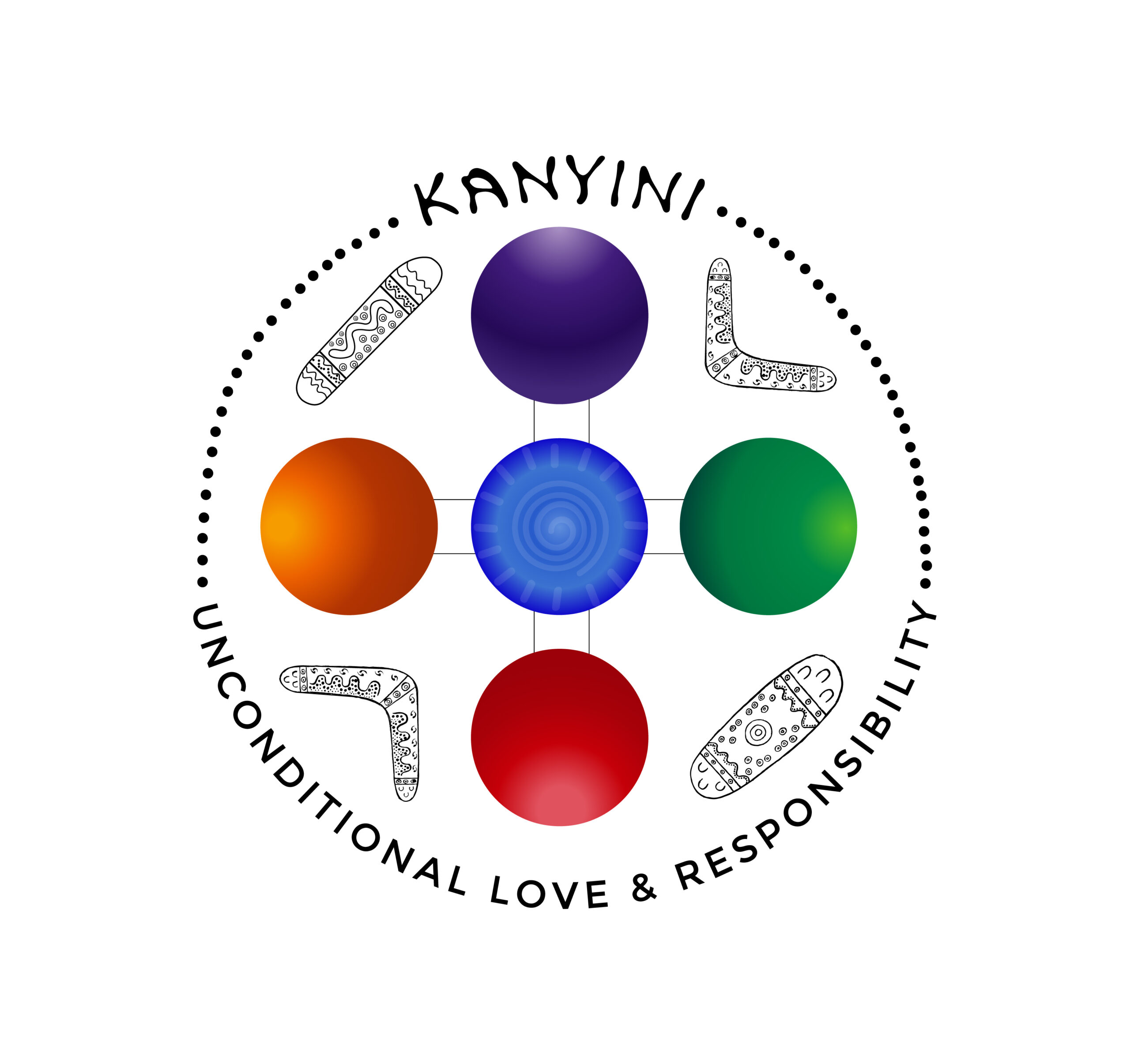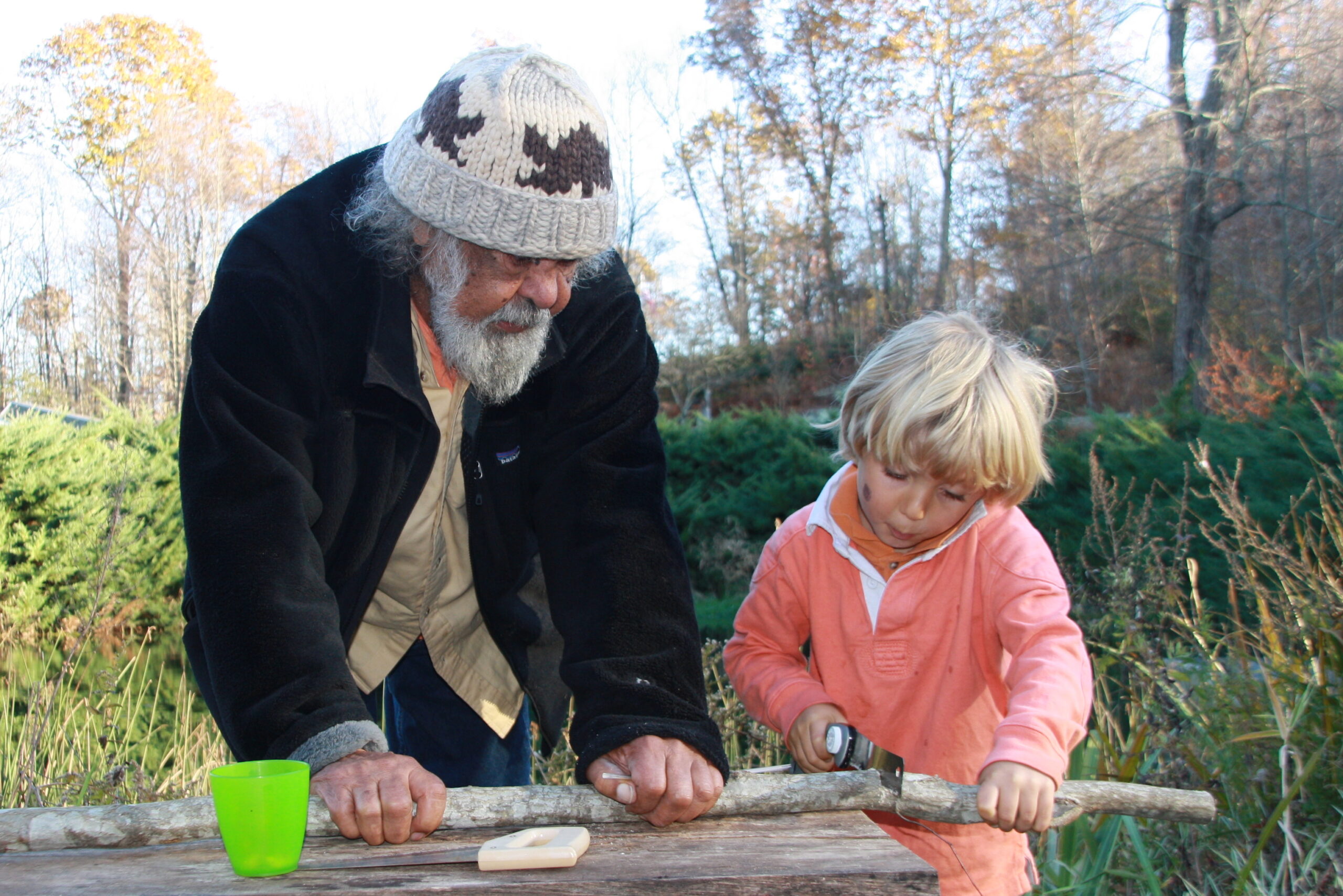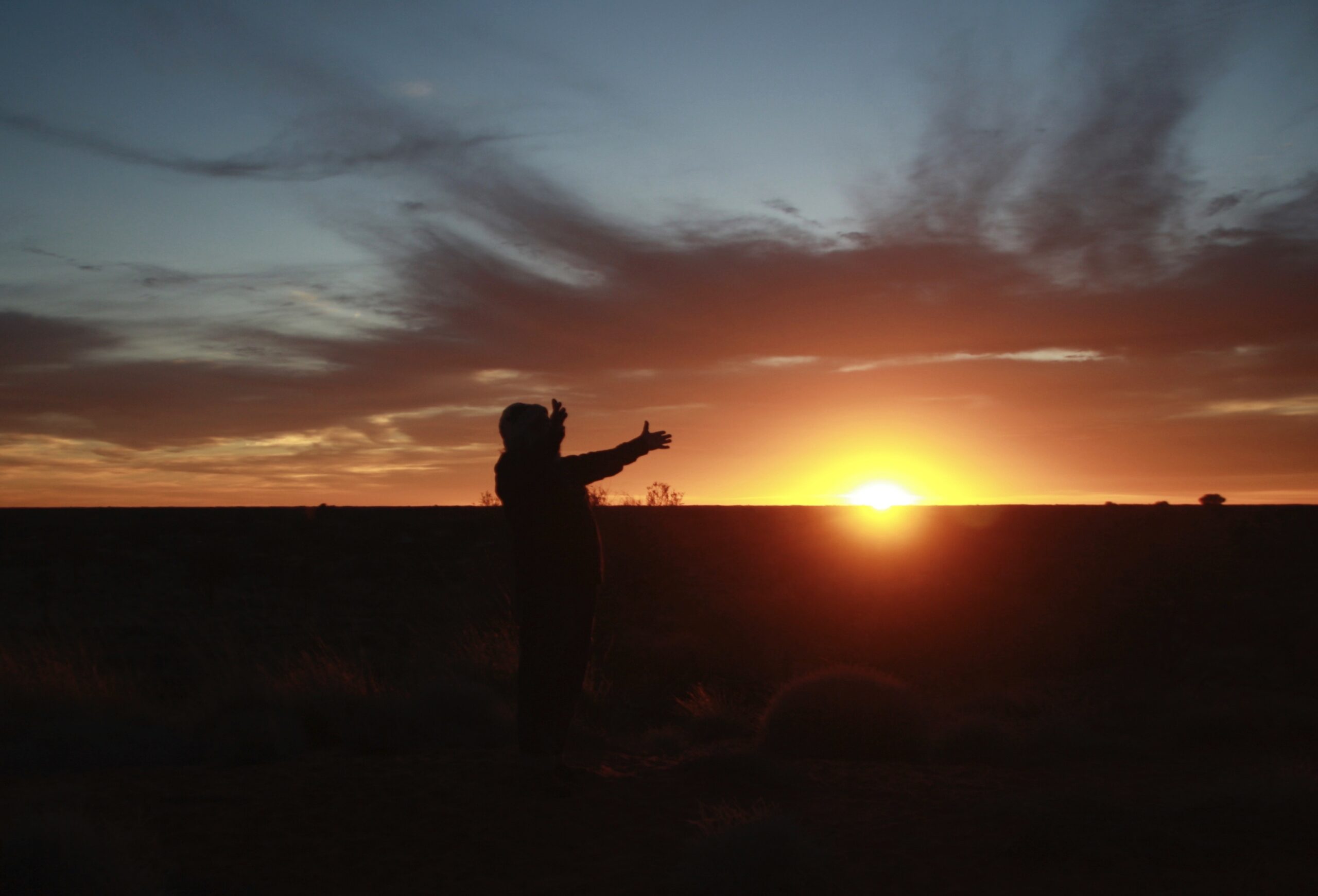Living the Wisdom of Kanyini
The Kanyini Principles
“In my peoples’ way, no one can own knowledge. We are responsible for knowledge and hand it down to our children and their children for the benefit of all that will be, not knowing what will be. We have done this since the beginning of time, since the beginning of our Tjukurpa. These are the teachings of my Anangu people. I share them with you in my responsibility as an Anangu man. I share these teachings with love, in the spirit of Kanyini.”

Kanyini Teachings
Living the law of unconditional love and responsibility begins here …

Tjukurrpa
Tjukurṟpa: philosophy, law. Our sacred relationship to the land and all creation.
“Tjukurrpa is creation. All things come from Tjukurrpa.”

Walytja
Walytja: kinship and family.
“We’ve always belonged to the earth and it is this belonging that unites all living , human and non-human, as family.”

Ngura
Ngura: country, belonging, land.
“Wherever I am at any moment of time, that is my home.”

Kurunpa
Kurunpa: spirit, soul and psyche.
“I’m responsible for the strength of my spirit.”
the Right Way to Live
Kanyini is a universal principle of love and responsibility for all things. The word Kanyini is a Pitjantjatjara and Yankunytjatjara language word which Uncle Bob says, “in English… is living a life of unconditional love for all living, all life, and each other and being responsible for that love from self, outwards.”
Uncle Bob explains that, as a member of the Stolen Generations, “I found myself being sent north to the other Aboriginal people who were different to my people, they were different nations, but they had similar ways which I was familiar with. They did have a system where they included all things as relatives and family. And they told the stories of those relationships, they sang the songs about those relationships, and they danced the dances of every single one of these special other beings which lived in the same area where they lived. Because that’s the way I was raised. And I was able to identify it then amongst with these people right up there, hundreds of miles from where my people were, but the same caring and having that unconditional love which I refer to as the Kanyini principle, was identified there.”
To understand Uncle Bob’s story and the historical and cultural context from which he developed the Kanyini Teachings, watch the 52-minute Kanyini film.
Art by Hazel MacKinnon
Through the Kanyini Teachings, Uncle Bob emphasises that each of us know our own unique identity and belonging as a part of Sacred Creation. People learn about the beauty within the diversity of creation.
“In my culture, always has been, everything is already created in a perfect state, so become part of it.”
The four Kanyini Principles are not separate, but they are separated for understanding. These Principles can be described as concepts, but they are not provided to be conceptual. They must be lived, experienced with responsibility from each person to have meaning. Uncle Bob said, “This is what I learnt from my old people.”
Uncle Bob has left these Kanyini Teachings as his legacy of ancient wisdom ways, passing on the knowledge of the right way to live to all peoples of the world. This is his gift to the world because, “Once we change the way we think our spirit then helps us to make the necessary changes in the way we live. But to get that help, we must accept Kanyini, love and responsibility for all things.”
Connectedness
“We never saw ourselves as separate from anything living. The old people used to tell us that we belonged to everything that was around us and everything that was around us belonged to us. We were all connected through life, living in total equality with every living thing. My old people used to say, “That tree, he no different from you. You get cut, you bleed. He get cut, he bleed.” We were taught to understand that he has feelings, just like us humans, and you have to consider the feelings and the rights of the tree and everything in nature. You’re only allowed to take so much of a tree when making a windbreak, no more. This is one of the ways we learned responsibility.”
Uncle Bob
Join the Kanyini Community
Stay connected. Let’s live the Kanyini principles together!


